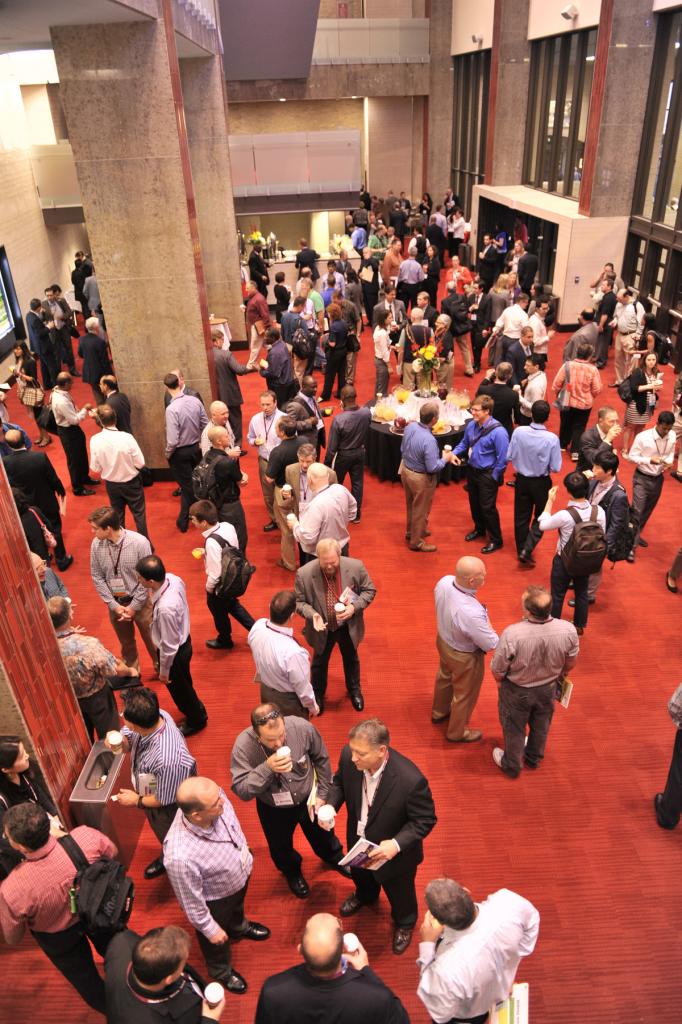
A session at the 2013 AIChE Spring Meeting in San Antonio, TX, entitled "Career Game-Changers," presented by Alaina Levine of Quantum Success Solutions, equipped its attendees with the tools to effectively network to access the perfect job, interview to seal the deal, and negotiate the best possible salary.
Networking for success
In this session, career consultant Alaina Levine spoke about the power of networking and the mutually beneficial relationships that it can create over time. Networking is absolutely necessary to advance your career, as it opens hidden opportunities that cannot be found on job websites and company career pages.
According to Levine, networking is closely linked to self-promotion. Although many view self-promotion in a negative way, Levine counters that in order to advance your career, you must promote yourself. Self-promotion has many advantages; not only does it establish your credibility and expertise in your field, it also keeps your name fresh in the minds of the public and decision makers. It also shows your energy and dedication to your company and profession. Focus on promoting your expertise, value to the customer, uniqueness, enthusiasm, skills, and positive attitude. All of these things are what create your "brand" -- your promise of value and how you deliver that value. "Networking is a spectrum of continuous activities" that make connections and promote your brand, says Levine.

In order to make meaningful connections while networking at an event, the first step is to bring and ask for business cards. Dress appropriately, be seen, and work the room. Remember, you are not there for the free food and drinks. Don't be afraid to introduce yourself, especially to others who may have come alone to the networking event. After the initial introductions, Levine suggests that you come up with a question to get people talking about themselves, such as "What is the best part of what you do?" Keep the person's interest for around ten minutes, but know when to excuse yourself and move on. If you are actively job-hunting, never ask someone at an event for a job -- instead, ask if you can follow up with him or her. After any networking event, it is crucial to follow up with a quick email to keep the connection alive; otherwise you have wasted your time.
Interview to seal the deal
If you are looking for a job, remember that the interview begins the moment you first interact with the interviewer, the company, and the industry. Keep in mind that the job search process should be about what you can provide the employer and how you can help them -- not about what the employer can give you. The purpose at the heart of any job anywhere is to solve a problem; therefore, companies are looking for candidates that are problem solvers. The candidate that is hired will be required to solve problems, add value quickly, and make the boss look good, states Levine.
To obtain an interview, don't rely on websites and ads alone. Use your networking skills to connect to your contacts and your contacts' contacts. Ask them for informational interviews to learn more about their jobs and what they do. Remember that those in hiring positions would rather hire someone that they know than sort through thousands of r?sum?s. By establishing connections through networking, you are more likely to get an interview than someone who submitted their r?sum? through a website.
Levine emphatically reiterated the power of a strong cover letter. If you are applying for a job you found through a company or job website, research the organization you are applying for. Collect data on their annual reports, and perform Google and Google News searches; reference these products, services, divisions, and issues in your cover letter. Be creative in your initial letter of interest in order to show how you will solve their problems and fit into their culture. Don't write only about yourself -- instead, tell the company what you can do for them. The hiring manager needs to know that you are already thinking in terms of their problems. Putting time into the cover letter lets the company know that you are serious about the job and you know what the company is all about.
After you land an interview through extensive networking or a strong cover letter and r?sum?, it is extremely important to prepare before the interview. Research the company's history and its current competition. Levine suggests that you have reliable answers prepared for some of the typical interview questions. That way, if you are asked a negative question, such as "what is your greatest weakness?" you can spin it into a positive response, such as "I'm a workaholic."

Interview follow-up
At the interview bring with you extra copies of your r?sum?, copies of your reference sheet, and a plain paper-pad and pen. You can also bring a list of questions you would like to ask about the job, your own personal business cards, and your thesis or portfolio just in case the hiring manager is interested in seeing it. Make sure you are enthusiastic, polite, and respectful. Discuss their needs in terms of your experience in order to translate your diverse skills into the language of the job. Keep in mind that anything on your r?sum? is fair game -- so be ready to discuss every point on your r?sum? in detail.
As you leave the interview, let them know how enthusiastic and motivated you are for the position, ask for their business cards, and give them yours. It is typically okay to ask about the timeline for hearing back about the job -- just so you know when to check in if too much time elapses without a yay or nay from the company. After the interview, send a thank-you note as soon as possible to everyone that interviewed you. Sending a thank-you to the administrative assistant who provided coffee or water is also a nice touch, says Levine.
Most importantly, if you don't get the job, don't burn any bridges with the company. Thank them for the opportunity to interview and stay connected through your vast network. If a future opportunity presents itself, you may be the first person they contact.
Negotiation strategies
If you are offered the job after the interview, in order to receive the best possible salary and compensation package from the company, you must negotiate. "Companies are expecting you to negotiate," says Levine.
Top myths about negotiating:
- Negotiation is a one-time deal
- Negotiation is about seizing the upper hand
- If you do it right, you will get what you want or need
The most successful negotiations are those that provide a win-win for both parties. Therefore, it is important to do all salary research and understand your needs, wants, and limits before beginning negotiations. Remember that you won't ever have all of the information from the other party -- so don't ever reveal the end-salary you want to receive -- instead, if pushed, give an acceptable salary range. The salary range that you provide should be valued based on total compensation, and include the value of insurance, retirement package, equipment, days off, etc. Therefore, you must have an idea of what insurance and paid time off are worth.
The most important things to remember when negotiating are:
- Don't take the first offer
- Have alternative offers ready, based on your value and limits
- It does not hurt to ask for a greater salary and compensation package
- Be respectful
No matter how well a person negotiates, the company may have tight budget restrictions and may not be able to negotiate much higher than the original offer. Despite this, it is important that you know your non-negotiables and stick to them. When you reach a favorable resolution, express gratitude -- but make sure you have everything in writing.


